Air exchanger services Dartmouth homeowners rely on are essential for maintaining healthy indoor air and protecting your biggest investment - your home. Here's what you need to know about local service options:
Top Air Exchanger Services in Dartmouth:
Modern Dartmouth homes are built tight for energy efficiency. That's great for your heating bills, but it creates a serious problem: indoor air can be up to 10 times more polluted than outdoor air.
Your air exchanger works around the clock to fix this. It pushes stale, contaminated air out while pulling fresh outdoor air in. The magic happens in the heat recovery core, where outgoing warm air transfers its heat to incoming cold air.
But here's the thing - all homes built from the 1960s to today require air exchanger installation. And like any hardworking system, your air exchanger needs regular care to keep doing its job properly.
Without proper maintenance, you'll face stuffy air, excess humidity, mold growth, and sky-high energy bills. Over 50% of Nova Scotia homes already show visible signs of humidity problems.
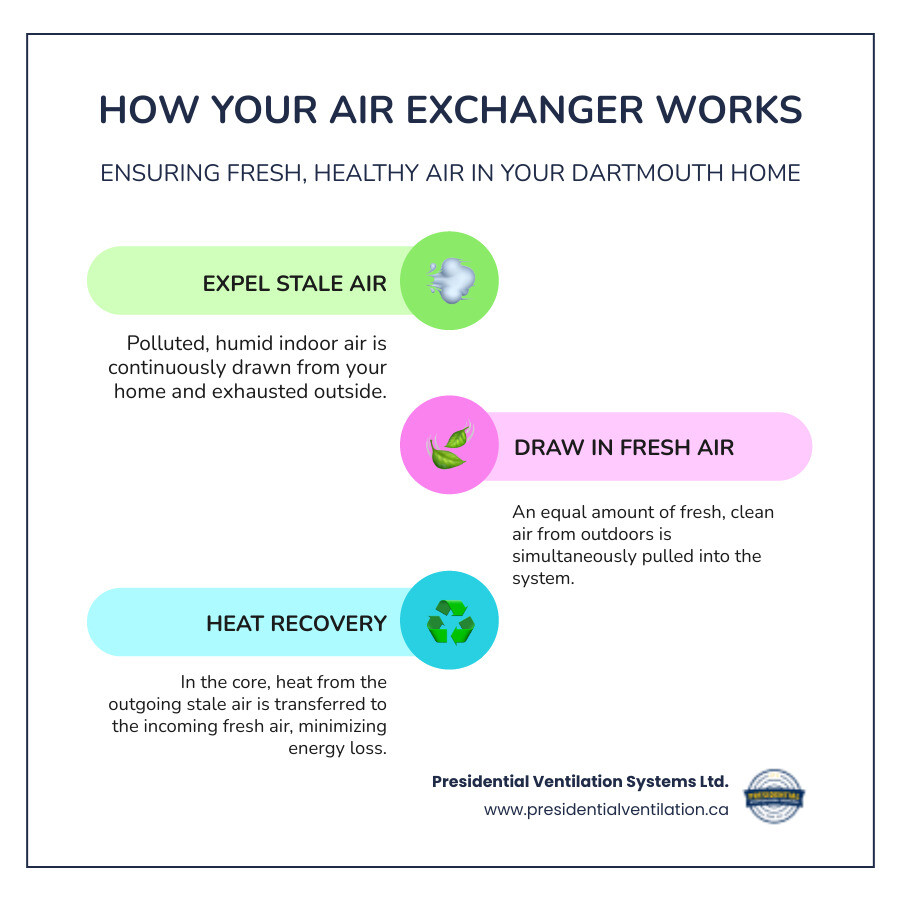
Living in Dartmouth means dealing with Nova Scotia's unique coastal climate, making a properly functioning air exchanger essential for your home's health and comfort.
Your home's indoor air can be up to 100 times more polluted than the air outside. Modern homes are built tight for energy efficiency, which is great for heating bills but traps everyday pollutants like cooking fumes, cleaning products, dust, and pet dander inside.
This is where air exchanger services Dartmouth homeowners depend on become crucial. A healthy air exchanger works around the clock, pushing out stale, contaminated air while bringing in fresh outdoor air. Through heat recovery, your system captures heat from the outgoing air and transfers it to the incoming fresh air.
This isn't just about comfort; it's about real energy savings. When your air exchanger recovers heat, your furnace and air conditioner don't have to work as hard. This translates directly into lower utility costs, which is especially valuable in Nova Scotia.
A major benefit for Dartmouth homes is humidity control and mold prevention. Over 50% of Nova Scotia homes show visible signs of humidity problems. Without proper ventilation, moisture from daily activities builds up, creating a breeding ground for mold and mildew. This can cause serious, often hidden, structural damage.
If you're looking to maximize your energy efficiency and potentially qualify for financial assistance, check out more about energy efficiency programs.
Your family generates a significant amount of indoor air pollution daily. Stale air removal is critical because trapped air becomes loaded with dust, bacteria, mold spores, and pet dander. Add in pollutants from cooking and household cleaners, and you have a serious indoor air quality problem.
A properly maintained air exchanger tackles this through allergen reduction and pollutant filtering. It continuously cycles out contaminated air and replaces it with fresh, filtered outdoor air. Many clients notice a real difference in their allergy symptoms once their system runs properly.
The heat recovery process is a key feature. Your air exchanger captures up to 85% of the heat from outgoing stale air and transfers it to incoming fresh air. This means reducing your HVAC workload significantly.
Instead of your furnace heating freezing outdoor air from scratch, it gets pre-warmed air. The same principle works in reverse during summer. This translates into lower utility costs on your monthly bills.
Dartmouth's coastal climate makes humidity control critical. Between humid summers and damp winters, moisture management is key to your home's long-term health.
Every shower, meal, and breath adds moisture to your indoor air. Without an effective way to remove it, humidity accumulates quickly. Preventing condensation becomes a daily battle, especially on windows and walls.
The real danger is fighting mold and mildew before they take hold. Excess humidity creates the perfect breeding ground for these unwanted guests, which are difficult and expensive to eliminate once established. We've seen many homes where moisture problems led to costly, avoidable structural repairs.
A properly functioning air exchanger maintains comfortable humidity levels by exhausting humid indoor air and replacing it with conditioned outdoor air. This is vital in Nova Scotia's variable coastal climate.
The system also protects your window frames and wooden elements from moisture-related decay. When humidity is balanced, you avoid condensation that can damage paint, wood, and insulation over time, acting as an invisible shield for your home's structure.
When your family's health and comfort depend on clean air, you need air exchanger services Dartmouth residents have trusted for over three decades. At Presidential Ventilation Systems Ltd., we understand that your air exchanger isn't just another appliance - it's the silent guardian working around the clock to keep your home's air fresh and healthy.
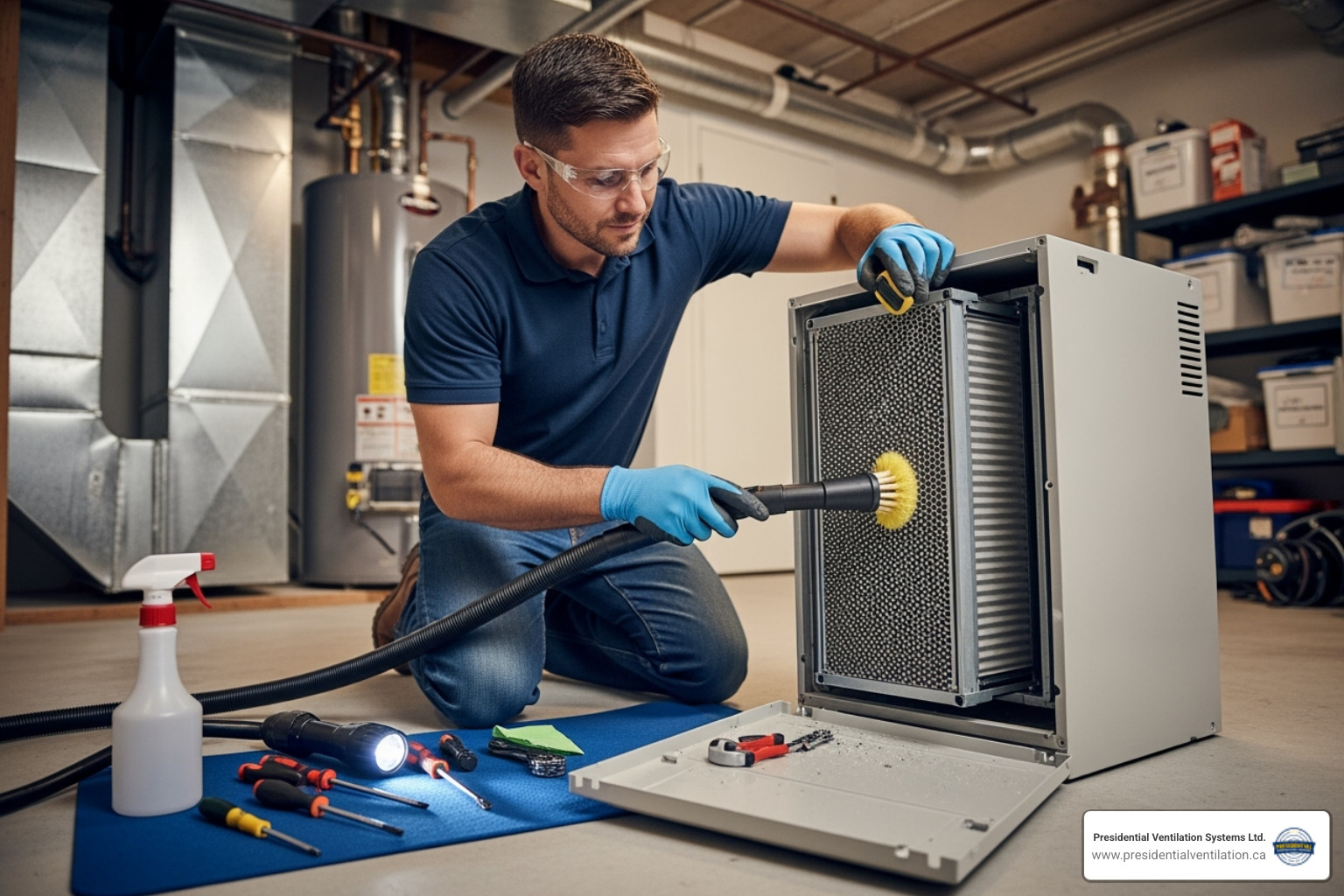
We've seen it all in our 30+ years of service - from brand new installations that need to integrate perfectly with your home's design, to emergency repairs on systems that have been neglected for years. Whatever your air exchanger needs, we're here to provide the professional care your system deserves.
Our team takes pride in delivering service that goes beyond just fixing problems. We believe in building relationships with Dartmouth families, helping you understand your system, and ensuring it operates efficiently for years to come. To explore everything we offer, visit our comprehensive Services page.
Getting your air exchanger installation right the first time makes all the difference. Whether you're building your dream home or finally addressing the stuffy air in your existing house, proper installation is crucial for long-term performance and energy savings.
For new construction projects, we work closely with builders and homeowners to ensure your air exchanger integrates seamlessly with your home's design and HVAC system. The key is choosing the right size unit - too small and it won't handle your home's ventilation needs, too large and you'll waste energy while creating uncomfortable drafts.
Retrofitting older homes is where we really see the magic happen. Many Dartmouth homes built decades ago were never designed with modern ventilation in mind. When we add a quality air exchanger to these homes, families are amazed at the immediate improvement in air quality and comfort. The change can be dramatic - no more condensation on windows, fresher air, and often reduced allergy symptoms.
If your current system is showing its age, system replacement might be your best investment. Today's air exchangers are far more efficient than models from even 10 years ago. We'll help you choose a system that matches your home's specific needs and your family's lifestyle, backed by warranties that give you peace of mind. Learn more about our installation options on our Air Exchanger Systems Dartmouth NS page.
Here's the truth about air exchangers: they're incredibly reliable when properly maintained, but neglect them and they'll let you know. Regular maintenance isn't just about preventing breakdowns - it's about keeping your family breathing the cleanest air possible while maximizing your energy savings.
Think of maintenance as an investment that pays dividends. Filter cleaning and replacement ensures your system can effectively capture pollutants and allergens. Core inspection and cleaning keeps the heat recovery process working efficiently, which directly impacts your energy bills. Condensate drain clearing prevents water damage that could cost thousands to repair.
We also perform thorough exterior vent checks because blocked outdoor vents can seriously impact your system's performance. You'd be surprised how often we find bird nests or accumulated debris causing problems. Motor and fan inspections catch small issues before they become expensive repairs, while seasonal adjustments ensure your system adapts to Dartmouth's changing weather patterns.
Our maintenance visits typically reveal small issues that homeowners never notice - until they become big problems. By catching these early, we save our clients money and ensure their systems run quietly and efficiently year-round.
Even the best-maintained air exchangers occasionally need repairs, and when they do, you want experienced technicians who can diagnose problems quickly and fix them right the first time. Our team has seen every type of air exchanger issue imaginable, from simple fixes to complex system failures.
Strange noises like grinding or rattling usually indicate motor problems or loose components. Poor airflow often points to clogged filters, blocked ducts, or fan issues. System leaks and water dripping typically involve condensate drain problems that need immediate attention to prevent water damage.
Control panel issues can be particularly frustrating because they affect your ability to operate the system properly. Unusual odors from your vents might signal mold growth or other contamination that requires professional cleaning and sanitization.
What sets our repair service apart is our commitment to finding the root cause, not just treating symptoms. We use advanced diagnostic tools and our decades of experience to identify problems accurately. Most importantly, we explain what went wrong and how to prevent similar issues in the future.
Our goal is always to restore your system to peak performance as quickly as possible, because we know how important clean air is to your family's comfort and health.
Choosing the right air exchanger for your Dartmouth home doesn't have to be complicated, but understanding your options will help you make the best decision. When you're exploring air exchanger services Dartmouth professionals offer, you'll encounter two main types: Heat Recovery Ventilators (HRVs) and Energy Recovery Ventilators (ERVs).
Both systems excel at bringing fresh air into your home while pushing stale air out. The key difference lies in how they handle moisture - and trust us, in Dartmouth's climate, that matters more than you might think!
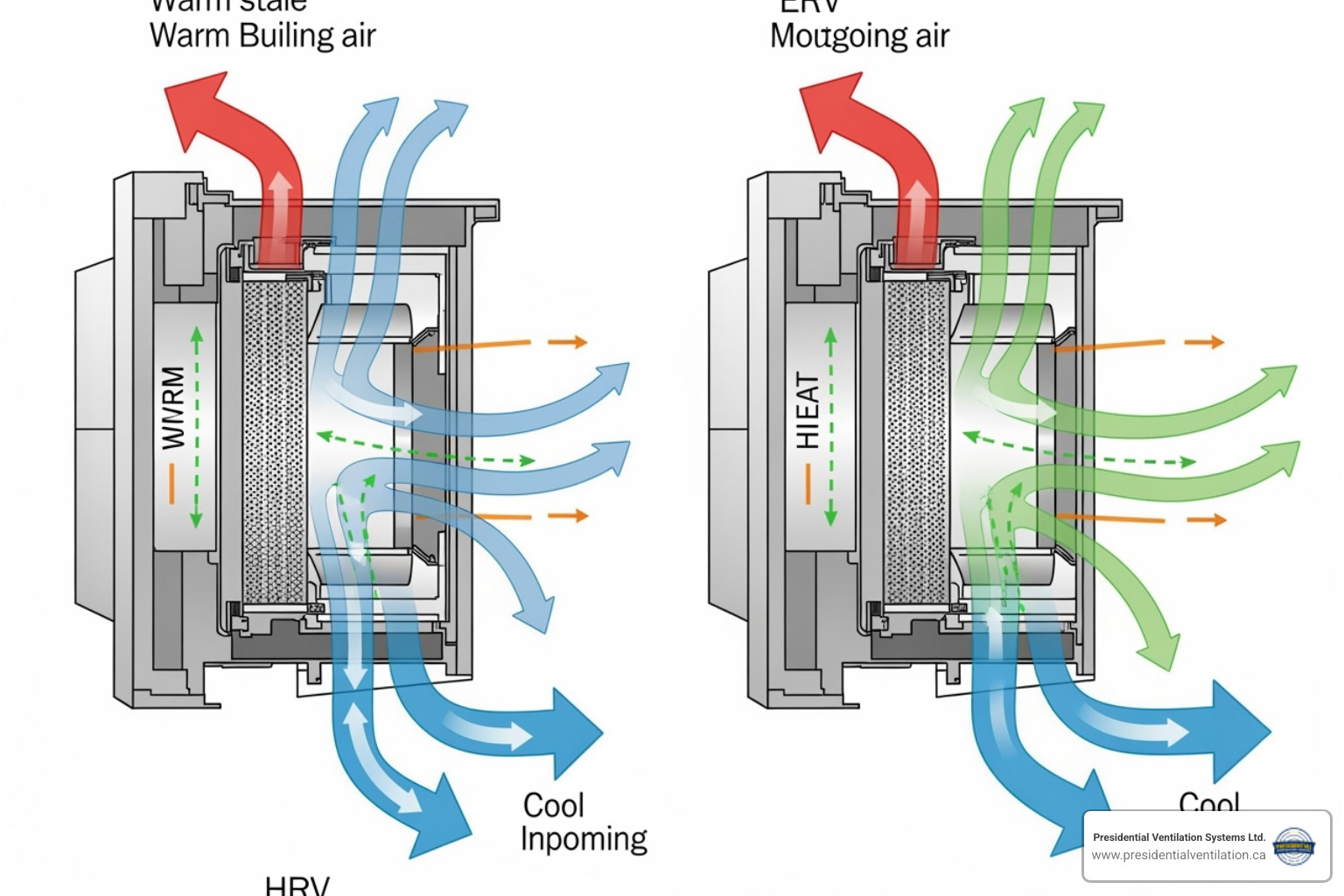
The secret to understanding these systems is knowing the difference between sensible heat (the warmth you actually feel) and latent heat (the energy stored in moisture). HRVs focus mainly on transferring sensible heat, while ERVs tackle both sensible and latent heat. This distinction can make a huge difference in your comfort and energy bills throughout the year.
We're here to help you determine which system works best for your home's unique situation. Every house is different, and what works perfectly for your neighbor might not be ideal for you. To explore our complete range of options, visit our HRV Systems page.
Heat Recovery Ventilators are the tried-and-true choice for Nova Scotia homes, and there's a good reason why. These systems are specifically designed to shine in colder climates like ours, where winter temperatures can really put your heating system to work.
Here's how an HRV works its magic: it captures the heat from your warm, stale indoor air as it's being expelled and transfers that heat to the cold, fresh air coming in from outside. The brilliant part? It does this without ever mixing the two air streams. You get all the benefits of heat recovery without any cross-contamination.
During Dartmouth's long winters, an HRV becomes your home's best friend. It pre-warms that frigid outdoor air before it enters your living space, which means your furnace doesn't have to work nearly as hard to bring it up to your desired temperature. This translates directly into energy savings on those hefty winter heating bills.
HRVs also help prevent your home from becoming uncomfortably dry during winter months. When you bring in cold outdoor air and heat it up, it naturally becomes very dry. An HRV helps maintain a more balanced humidity level, keeping your family comfortable and reducing issues like static electricity and dry skin.
Energy Recovery Ventilators take the concept of smart ventilation one step further. While they do everything an HRV does, ERVs also manage moisture transfer between the incoming and outgoing air streams. This makes them particularly valuable in climates that experience both cold winters and humid summers - which perfectly describes Dartmouth!
During our sticky summer months, an ERV works like a humidity assistant for your air conditioner. It removes excess moisture from the incoming fresh air before it enters your home, which means your AC doesn't have to work overtime to dehumidify the air. This reduces the load on your air conditioning system and can lead to noticeable energy savings during those hot, humid days.
In winter, an ERV helps retain some of your indoor humidity rather than letting it all escape with the outgoing air. This prevents your home from becoming too dry while still providing excellent ventilation. The moisture transfer capability makes ERVs incredibly versatile, adapting to our changing seasons automatically.
The year-round benefits of an ERV make it an attractive option for Dartmouth homeowners who want optimal comfort in all seasons. While the initial investment might be slightly higher than an HRV, the energy savings from reduced air conditioning and heating loads often make up the difference over time.
Your air exchanger is like the lungs of your home: when it works well, you don't notice it. But when something is wrong, you'll feel it. The good news is your system usually gives warning signs before it fails completely.
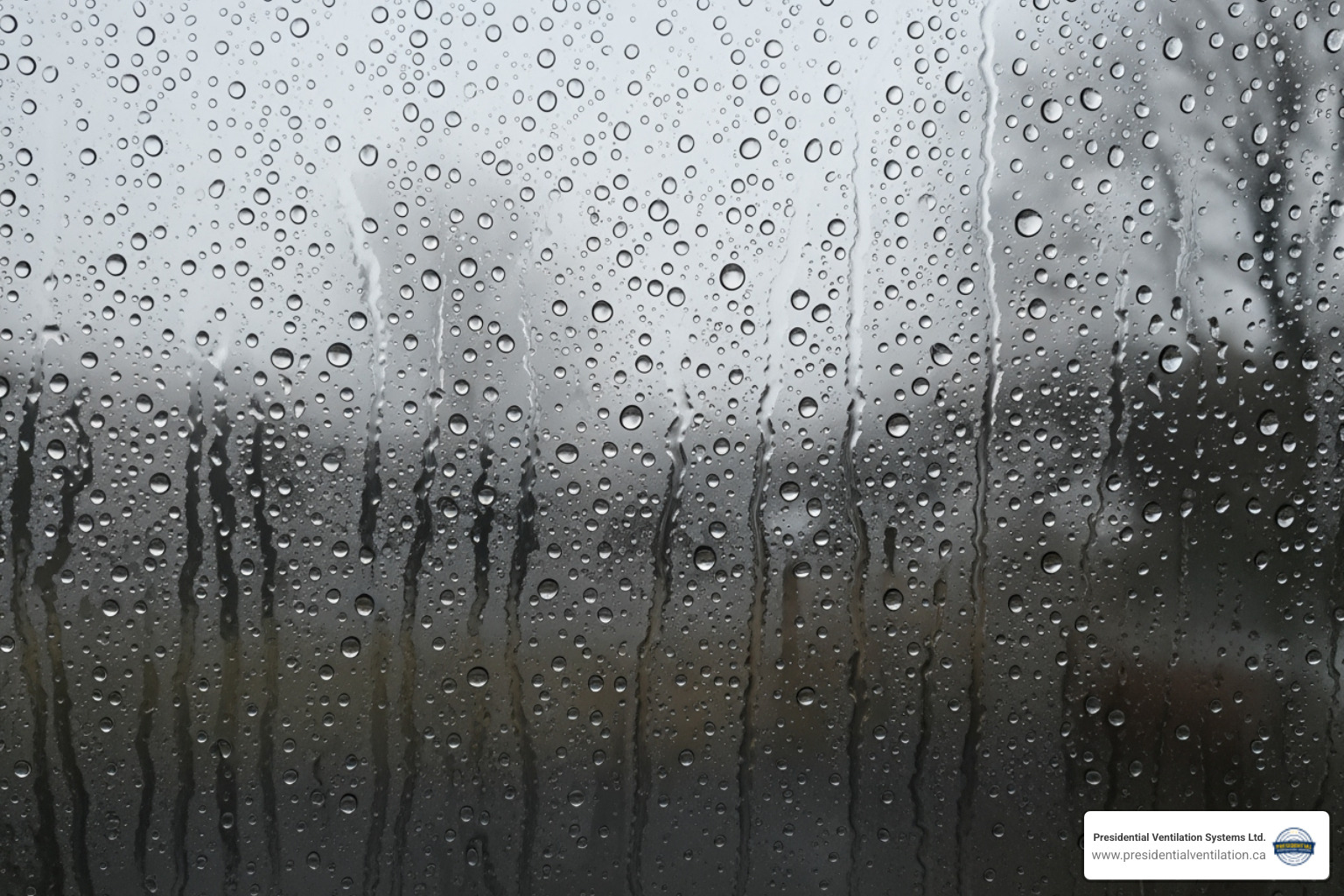
Catching these signs early is key. Recognizing these symptoms is the first step for the air exchanger services Dartmouth homeowners need, preventing small issues from becoming expensive headaches. Your home is talking to you; the trick is learning its language.
Stuffy air that just won't clear is usually the first sign something's not right. If the air feels thick and stale, cooking smells linger for hours, or your home feels like it needs "airing out" even with windows closed, your system isn't replacing stale air with fresh outdoor air.
Window condensation reveals your home's humidity levels. While a little condensation during cold snaps is normal, constant moisture on windows means your air exchanger isn't managing humidity properly, a common issue in Dartmouth's coastal climate.
Strange noises are never a good sign. These systems should run quietly. Grinding, rattling, or squealing sounds suggest a mechanical issue like worn bearings, a struggling motor, or loose parts.
Mold growth near your vents is a red flag demanding immediate attention for your family's health. It usually means moisture and contaminants are building up in your system, creating a breeding ground for mold.
Increased allergy symptoms can often trace back to poor indoor air quality. If your family is sneezing more or feeling uncomfortable at home, your air exchanger may not be filtering allergens effectively.
Higher energy bills without an obvious cause can point to your air exchanger working too hard. If the system is clogged or struggling, your furnace and air conditioner must pick up the slack, increasing utility costs.
Water leaks or pooling around your unit typically means a blocked condensate drain. This can lead to costly water damage and mold growth.
Erratic system behavior, like not turning on, running constantly, or ignoring controls, usually indicates electrical or control panel issues needing professional diagnosis.
If any of these sound familiar, don't wait. A quick service call can save you from major repairs and keep your Dartmouth home's air fresh and healthy.
When your home's air quality and comfort are on the line, choosing the right service provider isn't just important—it's essential. We've seen too many homeowners deal with poorly installed systems or shoddy repairs that end up costing more in the long run. That's why we believe in doing things right the first time.
The good news? Dartmouth residents have access to some fantastic cost-saving incentives that can make professional air exchanger services Dartmouth homeowners need more affordable than ever. Let's walk through what you should look for in a service provider and how you can keep more money in your pocket while upgrading your home's air quality.
You can learn more about our comprehensive offerings on our HVAC Services Dartmouth NS page.
Finding the right air exchanger service provider doesn't have to be overwhelming. Here's what really matters when you're making this important decision for your Dartmouth home.
Licensed and insured technicians should be at the top of your checklist. This isn't just paperwork—it's your protection. If something goes wrong during installation or repair, you want to know you're covered. Our team carries full licensing and insurance because your peace of mind matters to us.
HRAI certification is another key indicator of quality. The Heating, Refrigeration and Air Conditioning Institute of Canada sets high standards for ventilation system work. When technicians hold this certification, you know they've received proper training and stay current with industry best practices. We make sure our team maintains these credentials with ongoing training.
Positive customer reviews tell the real story. Look for consistent feedback about professionalism, punctuality, and quality work. After 30 years in business, we're proud of the relationships we've built with satisfied clients throughout Dartmouth. Their testimonials speak to our commitment to excellence.
Experience with various systems makes a huge difference. Whether you have an HRV, ERV, or a specific brand like Venmar, you want technicians who've seen it all. With three decades of experience, we've worked on just about every air exchanger system you can imagine.
Transparent pricing and clear communication should be standard, not exceptional. You deserve to know exactly what you're paying for and why certain repairs or installations are necessary. We believe in explaining our recommendations clearly and providing upfront pricing so there are no surprises.
Here's where things get exciting for your wallet. Installing or upgrading to a high-efficiency air exchanger doesn't just improve your home's comfort—it can also qualify you for significant rebates and incentives.
Efficiency Nova Scotia programs offer various rebates for energy-efficient home upgrades, including qualifying HVAC systems. These provincial incentives are designed to help homeowners invest in solutions that save energy and reduce utility bills over time.
The federal incentives are even more impressive. The Canada Greener Homes Grant can provide up to $5,000 for energy efficiency upgrades, including high-efficiency air exchangers. This program is specifically designed to help Canadian families make their homes more energy-efficient while reducing their environmental footprint.
Upgrading to high-efficiency models becomes much more affordable when you factor in these rebates. The money you save upfront, combined with the ongoing energy savings from a more efficient system, makes this investment even smarter.
We're happy to help you steer these programs and identify which upgrades qualify for your Dartmouth home. Reducing installation costs through available rebates means you can invest in better indoor air quality without breaking the bank. It's a win-win situation that we love helping our clients take advantage of.
We've explored why air exchanger services Dartmouth homeowners trust are absolutely essential for creating the healthy, comfortable home you deserve. Think about it - your air exchanger quietly works around the clock, removing up to 100 times more pollutants than what's floating around outside, while carefully managing humidity levels that could otherwise wreak havoc on your home's structure and your family's comfort.
The benefits we've discussed today really add up. Improved indoor air quality means fewer allergy symptoms and fresher air for your family to breathe. Smart humidity control protects your windows, walls, and wooden structures from moisture damage that can cost thousands to repair. And let's not forget the energy savings - a well-maintained system can significantly reduce those monthly utility bills by taking the load off your heating and cooling systems.
Whether you need a brand-new HRV installation for your Dartmouth home, regular maintenance to keep your current system humming along, or expert repairs when things go sideways, the key is working with qualified professionals who understand our unique Nova Scotia climate. Remember those warning signs we talked about - stuffy air, excessive condensation, strange noises, or visible mold near vents. Catching these early can save you from major headaches down the road.
At Presidential Ventilation Systems Ltd., we've been helping Dartmouth families breathe easier for over 30 years. As a Daikin Comfort Pro Dealer, we bring decades of experience to every job, whether it's a simple tune-up or a complete system upgrade. We believe everyone deserves clean, fresh air in their own home, and we're here to make that happen with exceptional service and long warranties that give you real peace of mind.
Don't let poor indoor air quality compromise your family's comfort or health another day. The government rebates and incentives we discussed can help make these essential upgrades more affordable than you might think. Ready to take the next step? Contact Us today to discuss your specific needs or schedule a service call. Your Dartmouth home - and your family - will thank you for it. Ensure your home's air is fresh and healthy by exploring our expert HRV System services today!
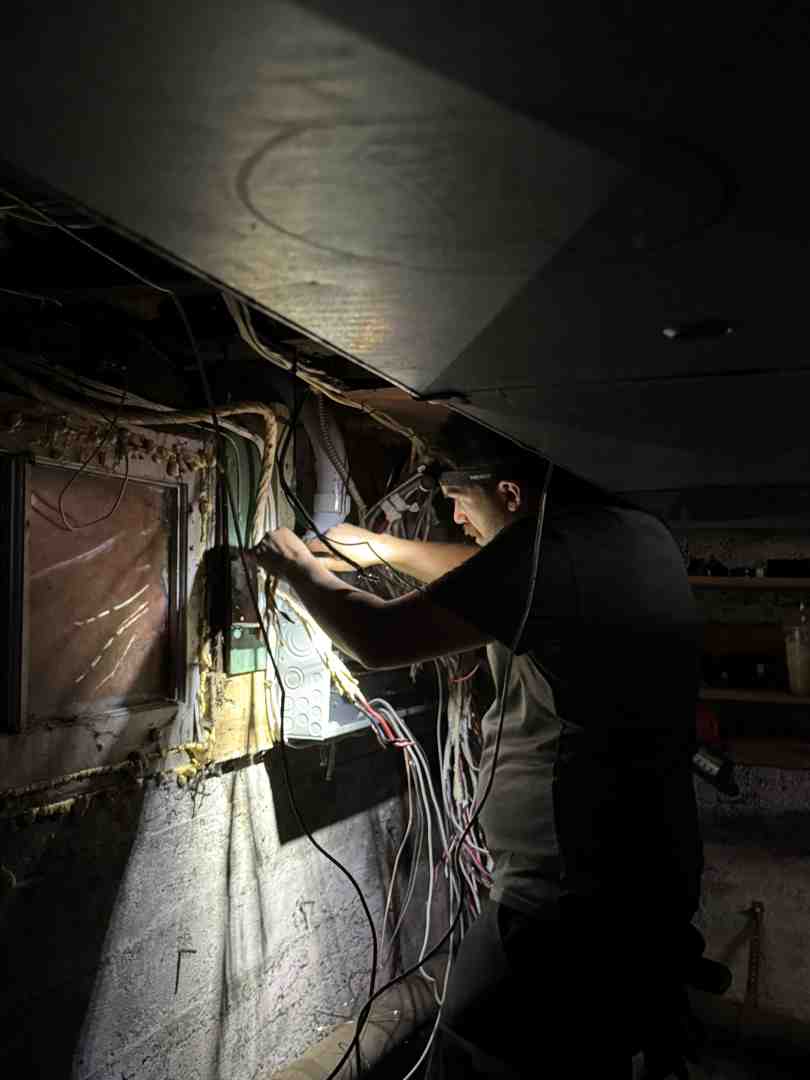


When you need electrical harrietsfield ns services, you're looking for qualified professionals who can handle everything from routine panel upgrades to complete home rewiring. Harrietsfield is a small community of 849 residents in 327 dwellings along Nova Scotia's scenic Chebucto Peninsula, and finding the right electrician means ensuring your home stays safe, efficient, and code-compliant.
Quick Guide to Finding Electrical Services in Harrietsfield:
Whether you're dealing with an outdated electrical panel, planning a renovation, or need specialized work like heat pump installation, local electricians offer comprehensive residential and commercial solutions. The key is choosing contractors who understand Nova Scotia's building codes and safety requirements while delivering reliable, efficient service.
For comprehensive HVAC and electrical expertise, explore our full range of services, or get started with a free assessment of your electrical needs.
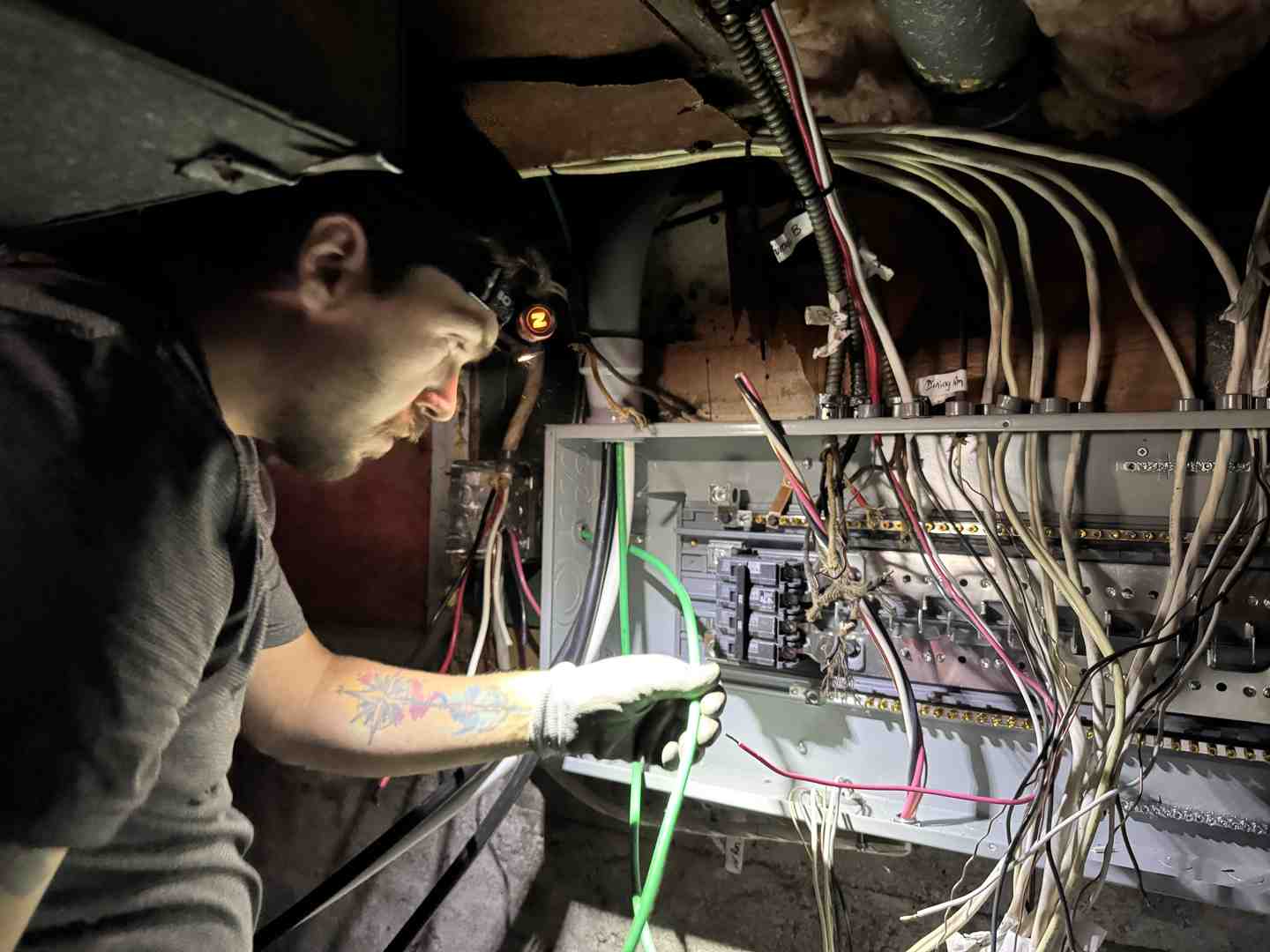
Welcome to our guide for navigating electrical Harrietsfield NS services! As homeowners, we often take our electrical systems for granted – until something goes wrong. From the moment we flip a switch to the comforting hum of our appliances, electricity powers our daily lives. But behind every working light and every charged device lies a complex network that requires professional care. For the residents of Harrietsfield, with its cozy community of 327 dwellings, ensuring this network is safe, efficient, and up-to-date is paramount. That's where we come in, offering insights into the essential services, how to find trusted professionals, and what you need to know to keep your home running smoothly.
Our goal is to illuminate the path to reliable electrical solutions, helping you understand the breadth of services available and the importance of choosing qualified experts. We believe that an informed homeowner is a empowered homeowner, especially when it comes to something as vital as electricity. So, let's explore how to keep your Harrietsfield home bright, safe, and fully powered.
When we talk about electrical Harrietsfield NS services, we're covering a wide array of needs that keep our homes functional and safe. From the moment you purchase a home to ongoing maintenance and upgrades, a reliable electrician is your best friend. For the 327 dwellings in Harrietsfield, these services are not just conveniences; they are necessities for modern living.
Here are some of the main residential electrical services we provide and that you can expect from qualified electricians in the Harrietsfield area:
Choosing a professional for these essential services means peace of mind, knowing that your home's electrical system is in capable hands. We pride ourselves on delivering top-notch service for all your residential electrical needs. To learn more about how we can help power your home safely and efficiently, visit our dedicated page on electrical services in Harrietsfield.
Beyond the everyday electrical services, homeowners in Harrietsfield often look for specialized solutions that improve comfort, increase energy efficiency, and provide critical backup during power outages. These advanced installations require specific expertise and careful planning, ensuring they integrate seamlessly and safely with your existing electrical infrastructure.
These specialized electrical installations are investments in your home's future, offering improved comfort, reliability, and efficiency. We ensure that every specialized project is executed with precision and adheres to the highest safety and quality standards. For more information on how these services can benefit your Harrietsfield home, explore our comprehensive electrical services.
Ensuring the safety and compliance of your home's electrical system is paramount. In Harrietsfield, as in all of Nova Scotia, electrical work is governed by strict regulations and safety standards designed to protect homeowners and properties. Understanding these guidelines and choosing qualified professionals is crucial for any electrical Harrietsfield NS project.
Our commitment to safety begins with employing highly skilled professionals. We believe that every homeowner deserves the peace of mind that comes from knowing their electrical work is done right. This is why we rely on Red Seal Electricians. A Red Seal endorsement signifies that an electrician has met the national standard of excellence in their trade, demonstrating a high level of skill and knowledge. This certification is a benchmark of quality and competence, ensuring that the professionals working in your home are among the best in Canada.
Another key indicator of a trustworthy electrical contractor is accreditation from the Better Business Bureau (BBB). Looking for a BBB-accredited electrician with a high rating (like an A+) provides an extra layer of assurance. The BBB evaluates businesses based on their adherence to ethical practices, customer service, and complaint resolution. When you choose a BBB-accredited professional, you're opting for a company that has demonstrated a commitment to integrity and customer satisfaction. The BBB lists over 440 results for electricians near Harrietsfield, NS, making it a valuable resource for your search.
Safety inspections are a non-negotiable part of maintaining a healthy electrical system. Regular inspections can identify potential hazards, ensure proper grounding, check for overloaded circuits, and verify that all installations meet current safety codes. This proactive approach can prevent serious issues down the line, safeguarding your home and loved ones.
To illustrate the evolution of safety, consider the differences between older electrical systems and modern installations:
| Feature | Standard Wiring (Older Homes) | Modern Safety Upgrades (Newer Homes & Renovations) |
|---|---|---|
| Wiring Type | Often knob-and-tube or early plastic sheathed wiring | Non-metallic (Romex) sheathed cable with ground wire, often copper |
| Panel Capacity | 60-100 amp panels, screw-in fuses or older circuit breakers | 100-200+ amp panels, modern circuit breakers (AFCI/GFCI) |
| Grounding | Limited or no grounding in many circuits | Extensive grounding throughout the system for safety |
| Outlets | Two-prong ungrounded outlets, no GFCI/AFCI protection | Three-prong grounded outlets, GFCI outlets in wet areas, AFCI in living spaces |
| Safety Devices | Few to no smoke/CO2 detectors, no whole-home surge protection | Hardwired smoke/CO2 detectors, whole-home surge protectors, tamper-resistant outlets |
| Code Compliance | Based on older, less stringent codes | Adheres to the latest Canadian Electrical Code standards |
Upgrading from older systems to modern safety standards is not just about convenience; it's about crucial protection for your home and family.
Any significant electrical work in your Harrietsfield home requires proper permits. This isn't just bureaucratic red tape; it's a vital step to ensure that all work is inspected and meets the safety standards set by the province and the Halifax Regional Municipality (HRM).
When starting on an electrical Harrietsfield NS project, whether it's a panel upgrade, new wiring installation, or major renovations, you'll need to obtain permits from the appropriate authorities. These permits ensure that licensed electricians perform the work and that it complies with the Canadian Electrical Code (CEC) and local HRM regulations. Nova Scotia Power also has specific requirements and standards that must be met, especially when dealing with service entrances or new connections.
We handle the permit process for our clients, ensuring all necessary paperwork is filed correctly and inspections are scheduled. This saves you time and stress, guaranteeing that your electrical project is fully compliant and safe from start to finish. Ignoring permit requirements can lead to fines, difficulties with insurance, and potentially dangerous electrical installations.
Beyond permits, adherence to stringent safety standards is non-negotiable for all electrical work. Our priority is the safety of your home and family.
Key safety standards we uphold include:
By focusing on these safety standards, we ensure that your electrical system is not only functional but also provides a secure environment for your family. We are committed to upholding the highest safety protocols in every project we undertake.
For homeowners in Harrietsfield looking to upgrade their electrical systems, especially with an eye towards energy efficiency, there's good news! Government programs offer incentives that can help offset the cost of making your home greener and more efficient. These programs are designed to reduce greenhouse gas emissions across Canada by encouraging homeowners to invest in energy-saving solutions.
One of the most significant initiatives is the Canada Greener Homes Grant. This federal program can provide eligible homeowners with up to $5000 for energy efficiency upgrades. While the grant covers a range of home improvements, many electrical upgrades, particularly those related to heating, cooling, and smart home technology, can qualify. For instance, installing new, energy-efficient heat pumps often falls under this grant, which requires specialized electrical wiring. The grant aims to help Canadians reduce their energy consumption, lower their utility bills, and contribute to a more sustainable future.
In addition to federal programs, Efficiency Nova Scotia offers its own set of incentives and rebates. These provincial programs often complement federal grants, providing further savings for homeowners who choose energy-efficient products and services. Efficiency Nova Scotia can offer rebates on everything from heat pump installations to smart thermostats and insulation, which indirectly benefits from a well-functioning and upgraded electrical system. To access these programs, you typically need to undergo a home energy assessment to identify the most impactful upgrades for your specific dwelling.
By taking advantage of these grants and incentives, you can:
We can guide you through the process of identifying eligible upgrades and help you understand how to steer the application process for these valuable grants and incentives. Our goal is to make your Harrietsfield home not just brighter, but also smarter and more energy-efficient.
We understand that you might have several questions when it comes to finding and working with electricians in Harrietsfield. Here, we address some of the most common inquiries to help you make informed decisions.
Finding a qualified electrician for your electrical Harrietsfield NS needs is crucial for ensuring safety and quality workmanship. Here's our advice:
By following these steps, you can confidently choose a qualified and trustworthy electrician for your home.
Homes in Harrietsfield, like many communities, can experience a range of electrical issues. While every home is unique, some common problems we often encounter include:
Addressing these common issues promptly with a professional electrician can prevent more serious problems and ensure the long-term safety and efficiency of your home's electrical system.
Absolutely! As we discussed, there are excellent opportunities for homeowners in Harrietsfield to receive financial assistance for energy-efficient electrical upgrades.
These programs are invaluable for making your home more sustainable and reducing your energy costs. We encourage you to explore these options and see how you can benefit from them to make your electrical Harrietsfield NS upgrades more affordable.
Navigating electrical Harrietsfield NS services doesn't have to be a shocking experience! With a clear understanding of the essential services, specialized solutions, and crucial safety standards, you're well-equipped to make informed decisions for your home. From ensuring your residential wiring is safe and up-to-code, to embracing energy-efficient heat pumps and reliable backup generators, the right electrical partner can make all the difference.
We've explored the importance of choosing qualified Red Seal Electricians, the assurance that comes with BBB accreditation, and the financial benefits of government incentives like the Canada Greener Homes Grant and Efficiency Nova Scotia programs. For the community of Harrietsfield, with its unique charm and close-knit feel, maintaining safe and efficient electrical systems is key to comfortable living.
At Presidential Ventilation Systems, we bring over 30 years of experience to the table, not just in HVAC but also in providing top-tier electrical services for both residential and commercial clients. As a leading Daikin Comfort Pro Dealer, we understand the intricate relationship between efficient heating/cooling and a robust electrical system. Our commitment to exceptional service, long warranties, and energy-saving solutions extends to every electrical project we undertake. We believe in powering your home with professionalism and precision, ensuring your peace of mind.
Don't let electrical concerns dim your day. Whether you're planning an upgrade, need a repair, or are simply looking for expert advice, we're here to help.
Schedule your Harrietsfield electrical service today and let us illuminate your home with our expertise.
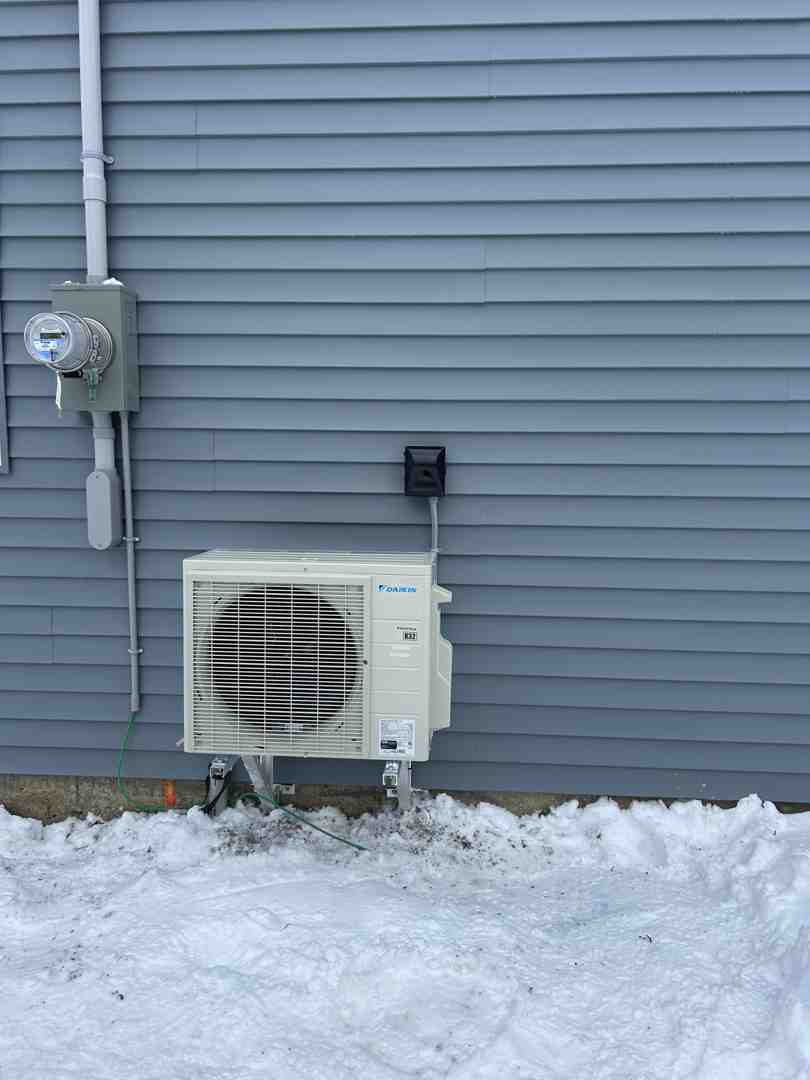


Knowing exactly when to pull the trigger on heat pump replacements in Truro NS can be tricky. You don’t want to replace a system that still has years of life left, but you also don’t want to wait until it fails completely during a February cold snap. Generally, if your system is over 15 years old, it is entering the "danger zone" where efficiency drops and mechanical failures become more common.
If you find yourself calling for heat pump repair services more than once a year, the cost of those "band-aid" fixes starts to outweigh the investment in a new, warrantied system. Beyond age, pay attention to your monthly utility bills. A sudden, unexplained spike in energy consumption often indicates that the compressor is working overtime to achieve the same results it used to reach with ease.
Performance decline isn't always a total system failure; sometimes it’s a slow fade. You might notice certain rooms in your Truro home feel drafty while others are sweltering. This uneven heating is a classic sign of a struggling indoor blower or a compressor that can no longer modulate correctly.
Airflow issues are another red flag. If the air coming from your vents or wall-mounted head feels weak or only lukewarm when it should be hot, the refrigerant cycle may be compromised. Furthermore, if your home feels unusually humid in the summer, your old heat pump is likely failing to perform its secondary job: dehumidification.
While air conditioners typically last 10–15 years, high-quality heat pumps can last 15–20 years with proper maintenance. However, Truro's coastal climate—with its salt air and extreme temperature swings—can accelerate wear and tear.
As technology advances, "obsolescence" becomes a factor. A 20-year-old unit uses significantly more power than a modern inverter-driven model. Even if the old unit is still "running," it may be costing you twice as much to operate as a new system would.
| Indicator | Repair Might Work | Replacement is Better |
|---|---|---|
| System Age | Under 10 years | Over 15 years |
| Repair Cost | Minor (e.g., capacitor) | Major (e.g., compressor) |
| Energy Bills | Stable | Consistently rising |
| Comfort | Even temperatures | Hot and cold spots |
| Noise Level | Quiet hum | Grinding or squealing |
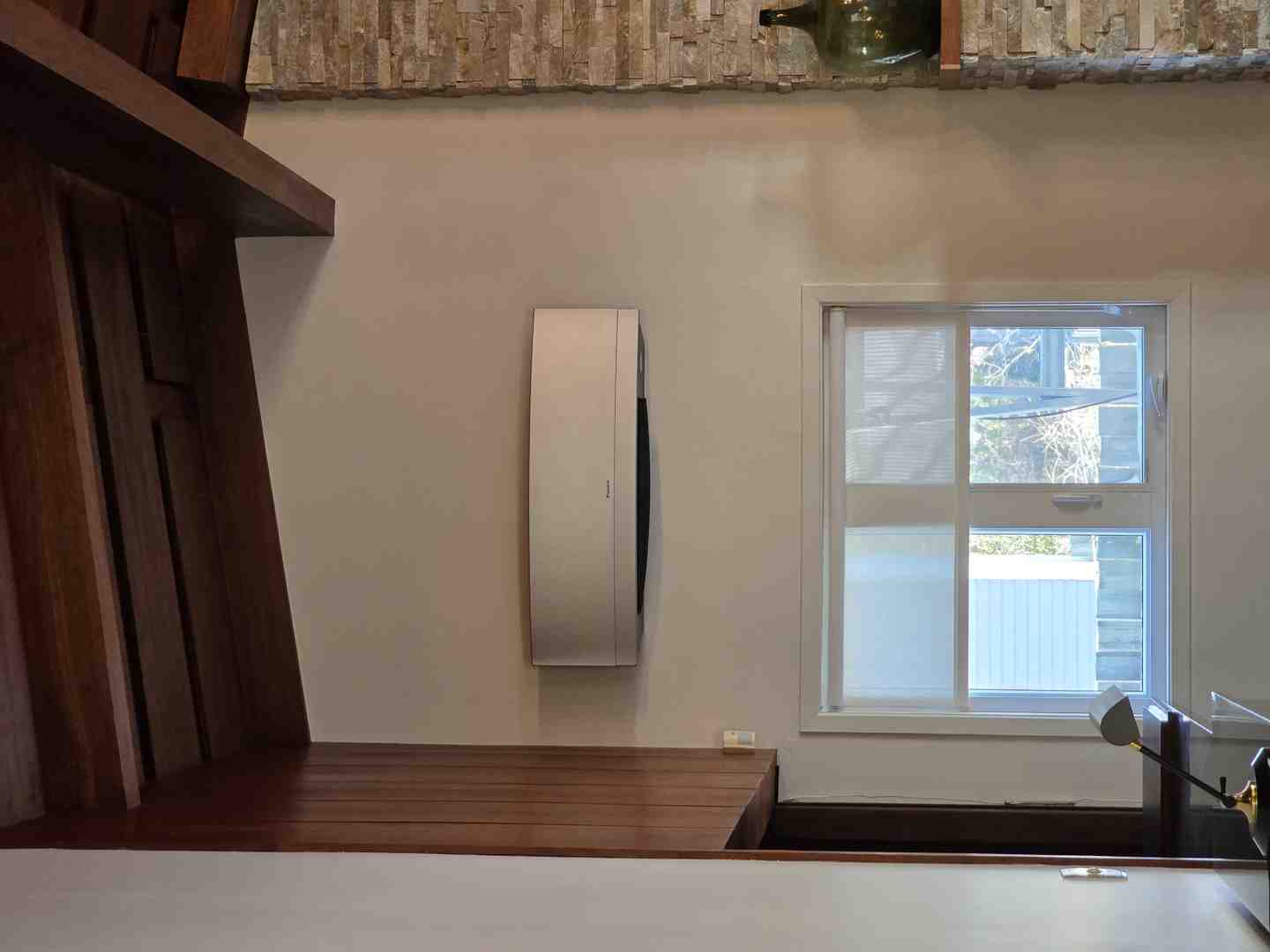
Truro is often called the "Hub of Nova Scotia," and its weather is just as central to the conversation. We experience everything from humid summer afternoons to bone-chilling winter nights. This variability is exactly why heat pump services are so vital here. Unlike a furnace that only heats, or an AC that only cools, a heat pump is a year-round workhorse.
Heat pumps don't actually "create" heat through combustion or electric resistance (which is expensive). Instead, they use refrigerant to "move" heat. In the winter, they extract heat from the outside air—yes, even when it’s cold—and pump it indoors. In the summer, the process reverses, pulling heat out of your house and dumping it outside.
A common myth is that heat pumps stop working when the temperature drops below freezing. While this was true decades ago, modern heat pump replacements in Truro NS feature advanced inverter technology. These systems can modulate their speed, allowing them to extract warmth from the air even when temperatures dip to -25°C or lower.
By using a variable-speed compressor, the system doesn't just blast on and off. It stays on at a low, steady rate, maintaining a consistent temperature without the "swing" that makes some homes feel uncomfortable. This results in a system that is up to three times more efficient than traditional heating methods.
For the eco-conscious Truro resident, heat pumps are a major win. Because they move heat rather than burning fossil fuels, they dramatically reduce your home's carbon footprint. Modern units also use eco-friendly refrigerants like R-410A or R-32, which have lower global warming potential.
Beyond the planet, think about your lungs. High-quality systems, such as those featuring Panasonic's NanoeX technology, don't just move air; they clean it. They can filter out dust, allergens, and even certain viruses and bacteria, providing a much healthier indoor environment for your family.
Every home in Truro is unique, from the historic Victorians near Victoria Park to the newer builds in Bible Hill. Choosing the right heat pump installation in Truro NS depends on your home’s layout, insulation levels, and existing infrastructure.
If your home already has a central ductwork system (perhaps from an old oil furnace), a ducted heat pump in Truro NS is often the most seamless replacement. These systems provide whole-home comfort through your existing vents, ensuring every room stays at the exact same temperature.
For homes without ducts—or for those looking to add heating and cooling to a specific area like a new sunroom or a basement—ductless mini-splits are the answer. These consist of an outdoor unit connected to one or more indoor "heads" mounted on the wall. They allow for "zoned" comfort, meaning you can keep your bedroom cool while leaving the guest room at a different setting, saving energy in the process.
Most heat pump replacements in Truro NS are air-source systems because they are versatile and relatively easy to install. They sit outside your home and exchange heat with the surrounding air.
However, for those looking for the ultimate in long-term sustainability, geothermal (ground-source) systems are an option. These use underground loops to tap into the constant temperature of the earth. While the initial setup is more involved, geothermal systems can save up to 70% on heating, cooling, and hot water costs over their lifetime.
Many Truro residents are making the switch from oil to electric heat pumps, and for good reason. Oil prices can be volatile, and maintaining an old furnace is often a messy, smelly affair. Switching to an oil to heat pump conversion in Truro NS can reduce heating costs by as much as 50%.
Consider this: a typical homeowner might use over 2,600 liters of oil annually. After a professional heat pump installation, that same home might only require a fraction of that (for backup) or eliminate it entirely, resulting in net energy savings of over $1,600 per year. Removing an old oil tank also eliminates the risk of environmental leaks on your property.
Beyond the savings, the comfort level is simply higher. Oil furnaces often provide "bursts" of intense heat followed by cold periods. A heat pump provides a steady, gentle flow of warmth. If your current furnace is on its last legs, considering a furnace replacement in Truro NS that incorporates heat pump technology is the most future-proof move you can make.
Additionally, heat pumps are incredibly quiet. You won’t hear the loud "clunk" and roar of a furnace kicking on in the middle of the night. To ensure your home's electrical panel can handle the new system, it's always wise to consult with electrical services in Truro NS during the planning phase.
When you choose us for your replacement, the process is designed to be as stress-free as possible. It begins with a thorough property assessment. We don't just look at your old unit; we evaluate your insulation, window quality, and square footage to ensure your new system is sized perfectly. An undersized unit will run constantly, while an oversized unit will "short cycle," leading to premature wear.
Because a heat pump is a sophisticated piece of electrical equipment, having a licensed electrician in Truro NS on-site is crucial. They will ensure your home’s wiring is up to code and that the unit has a dedicated circuit for safe, efficient operation. For a deeper dive into home wiring, check out our electrical services Truro NS complete guide.
The actual physical replacement usually takes one to two days. We remove the old equipment, install the new indoor and outdoor components, run the refrigerant lines, and perform a series of rigorous operational tests to ensure everything is calibrated for Truro's specific climate.
Once your new system is in place, a little bit of care goes a long way. Much like heat pump replacement in Halifax NS, Truro systems benefit from a regular maintenance schedule.
We recommend:
Most homes are compatible! Because ductless systems only require a small hole (about 3 inches) in the exterior wall for the refrigerant lines, they can be installed in almost any structure. We look for available wall space for the indoor "head" and a clear, level spot outside for the outdoor unit. If you have an open-concept layout, a single mini-split can often heat and cool a large portion of your home. For more localized advice, see our page on heat pump options in Truro NS.
A standard "like-for-like" replacement (replacing an old heat pump with a new one) usually takes a single day. If we are converting your home from an oil furnace to a full ducted heat pump system, it may take two days to ensure all electrical and ductwork connections are perfect. We always aim to minimize disruption to your daily routine.
To keep your new investment running like a dream, follow this simple checklist:
Choosing the right partner for heat pump replacements in Truro NS is about more than just buying a piece of equipment; it’s about ensuring your long-term comfort and peace of mind. At Presidential Ventilation Systems, we bring over 30 years of experience to every job. As a Daikin Comfort Pro Dealer, we specialize in high-efficiency systems that are built to withstand the unique challenges of the Nova Scotia climate.
From the initial assessment to the final handshake, our team is dedicated to providing Truro homeowners with the best technology and the most reliable service in the industry. If you're ready to upgrade your home’s efficiency and say goodbye to high energy bills, we are here to help. Explore our full range of heat pumps in Truro NS and let’s get started on your home’s transformation today.